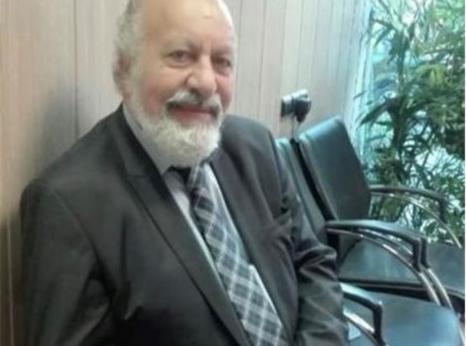Iran: Tortured Older Prisoner’s Life At Risk

Since February 2021, Shokrollah Jebeli has been taken to a hospital outside prison on several occasions for medical examinations but has not provided with the specialized treatment he needs for his various conditions following these tests. He has also been transferred to hospital on several occasions for examination by specialist doctors from the Legal Medicine Organization of Iran (LMOI), which is a state forensic institute that has the mandate to assess the health of sick prisoners and provide its opinion on whether they can tolerate imprisonment. On at least three of these occasions, after being left waiting for many hours, he was returned to prison without examination and told this was because the prison authorities had failed to make appointments. Upon being examined on other visits, according to informed sources, one of the doctors from the LMOI told him that he should be released from prison due to his poor health. Amnesty International understands that other state officials, including the head of Evin prison and the head of the Prisons Organization, a state body that operates under the supervision of the judiciary, have visited him at Evin prison and acknowledged to him that his health is critical and promised to address his situation. In addition to the denial of adequate specialized healthcare, he is not receiving the special low-salt diet he needs and sufficient potable water and has been forced to buy food at the prison shop with money sent from his family. On 26 July 2021, the Iranian authorities responded to a communication from the UN Special Procedures regarding the case of Shokrollah Jebeli and stated that he had been “examined by medical examiners to decide about capacity to serve time because of old age, physical weakness and movement disorders. To that effect, a demand has been filed for his release under electronic monitoring, which the Council is examining.” It is unclear to which Council the Iranian authorities’ communication referred, but to Amnesty International’s knowledge, the authorities have taken no steps to examine his case since then. The authorities’ response to the UN also erroneously stated that he “enjoys access to telephone without let or hindrance”, even though he has only been given telephone access for domestic calls, leaving him effectively barred from speaking with his family members, all of whom live in Australia.
Amnesty International understands that Shokrollah Jebeli has been detained in connection with a financial dispute brought by a group of claimants, one of whom, he has said in letters written from inside prison, has links to the political and security establishment in Iran. The legal claim is related to a complex financial dispute over the sale of land, financial transactions, and non-payment of debt; he has repeatedly denied any wrongdoing. In letters written from inside Evin prison, he has made counterclaims of theft and fraud against the plaintiffs involved in the case, detailing his financial dealings with the plaintiffs, and requesting that the Iranian authorities examine his bank accounts and transactions to prove his innocence. The authorities have opened two cases against him in relation to the same financial dispute. He has had two court hearings since his arrest, with the most recent taking place in November 2021, during which, according to informed sources, he was told by a judge that he would be released in two weeks on medical grounds and that the proceedings would continue while he was at liberty. However, the authorities have made his medical release contingent on his payment of 70 billion rial (approximately USD 290,000), which neither he nor his family can afford. In their communication to the UN Special Procedures, the Iranian authorities stated that Shokrollah Jebeli had been sentenced to four years and six months in prison, but failed to provide precise details of his conviction, including charges. The short communication stated: “The aforesaid has been sentenced to four years and six months in jail and 4,000,000,000 IRR in cash fine. Furthermore, the convict is sentenced to restituting the said amount to the claimant. Therefore, allegations of imprisonment on financial grounds and insolvency are absolutely false. It is hereby noted that the convict has hitherto failed to reimburse the plaintiff.” Amnesty International understands that this was the first time Shokrollah Jebeli discovered he had been convicted of any crime, and he has never received his court verdict in writing. He appealed his conviction but has received no information on the status on his appeal.
Due to the Iranian authorities’ lack of transparency, including their failure to provide Shokrollah Jebeli with a written verdict, Amnesty International has been unable to determine the precise details of Shokrollah Jebeli’s conviction. However, if, as the Iranian authorities’ communication to the UN Special Procedures suggests, his case is related to non-payment of debt, his detention is arbitrary under international law, which unequivocally prohibits, under Article 11 of the International Covenant on Civil and Political Rights, to which Iran is a state party, the imprisonment of individuals for failure to fulfil a contractual obligation. Despite this, Iranian law permits imprisonment of individuals for debt, under Article 3 of the 2015 Law on the Enforcement of Financial Convictions, and, according to state media, tens of thousands of people have been imprisoned for debt over the years.